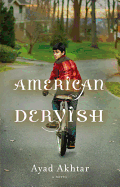
| Publisher: | Little, Brown | |
| Genre: | Fiction, Cultural Heritage, Coming of Age, Family Life | |
| ISBN: | 9780316183314 | |
| Pub Date: | January 2012 | |
| Price: | $24.99 |
| Fiction |
by Ayad Akhtar
In the prologue to this moving, insightful novel about religion and family, immigration and assimilation, narrator Hayat Shah recalls a watershed moment: at a college basketball game, he and two friends order two bratwurst and a beef dog from a vendor. When they're given three brats, Hayat decides he has no reason not to eat one; after, he feels transformed.
How that bratwurst sums up Hayat's journey from his Pakistani, nominally Muslim home in a Milwaukee suburb; discovering true faith as opposed to formulaic faith; and learning about hate and sacrifice--all are limned beautifully and powerfully by Ayad Akhtar as he tells Hayat's story. And Hayat's story is entwined with Mina's--his mother's best friend--who teaches Hayat to listen to the still, small voice within that can be heard only by finding the silence at the end of a breath, as she teaches him to love the Koran.
Akhtar's explorations into the tension between the universal truths of a religion and literal readings of its documents play out effectively. A master of scene and dialogue, and evocative prose, he's created a compelling and visceral novel. --Marilyn Dahl, book review editor, Shelf Awareness
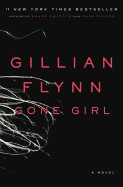
| Publisher: | Crown | |
| Genre: | General, Suspense, Fiction, Thrillers | |
| ISBN: | 9780307588364 | |
| Pub Date: | June 2012 | |
| Price: | $25 |
| Fiction |
by Gillian Flynn
Gillian Flynn's excellent new novel has so many twists and turns that describing it, even in broad strokes, runs the risk of disclosure. It would be a disservice to deny any reader the joy of slowly peeling away the layers of deceits wrapped around its deliciously dark heart.
On the day of their fifth wedding anniversary, Amy Elliott Dunne disappears from the sterile Missouri house she shares with her husband, Nick. He finds the front door wide open, signs of a struggle in the living room and a freshly mopped floor in the kitchen. The police draw what seems an inevitable conclusion: the husband did it. Nick agrees that he looks guilty and readily admits--to the reader--to being a liar.
Amy's diary might hold some clues--she wrote that she was beginning to become frightened of Nick's dark moods. Nick, naturally, tells a different story. According to him, it was Amy who had changed, becoming cold and bitter. Our sympathies and suspicions pinball as Flynn thickens her plot with an expert hand.
It is a rare breed of writer who can combine suspense, an intricately crafted plot and deeply developed characters without sacrificing nuance, but Flynn makes it look easy. Gone Girl delivers in spades. --Debra Ginsberg, author
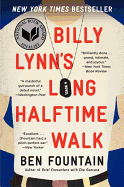
| Publisher: | Ecco | |
| Genre: | General, Fiction | |
| ISBN: | 9780060885618 | |
| Pub Date: | November 2012 | |
| Price: | $14.99 |
| Fiction |
by Ben Fountain
Ben Fountain has written a truly wondrous first novel in Billy Lynn's Long Halftime Walk. On the face of it, this is the story of Bravo Squad, eight brave survivors of a horrendous firefight with Iraqi insurgents who are being celebrated at Texas Stadium on Thanksgiving Day. They are feted, made part of the halftime show and projected on the Jumbotron--then dropped when their marginal utility has been served. But first they visit the owner's box--a glimpse of Valhalla for young men who have known nothing but privation, fear, mud and field rations for months.
Nineteen-year-old Billy Lynn is the centerpiece of the novel. The steady thrum that beats through every page is his realization that he will be back in Iraq in 36 hours. We see everything through the lens of his experience, at the center of which is the loss of his good friend, Shroom, in the firefight.
Billy Lynn's Long Halftime Walk is a sad story about what war does to us, all of us. If it doesn't bring you to your knees, read it again. --Valerie Ryan, Cannon Beach Book Company, Ore.
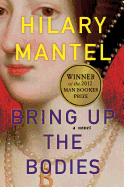
| Publisher: | Holt | |
| Genre: | General, Fiction, Historical | |
| ISBN: | 9780805090031 | |
| Pub Date: | May 2012 | |
| Price: | $28 |
| Fiction |
by Hilary Mantel
Henry VIII's Tudor England is a familiar place--but in the hands of Hilary Mantel, it becomes territory both new and unsettling. In Bring Up the Bodies, the sequel to Wolf Hall (both of which won the Booker Prize), Mantel weaves a richly textured world that is at once deeply foreign and entirely relevant, coalescing around the single thing that over centuries remains unchanged: the driving passions of people, even those who are kings. Through the eyes of Thomas Cromwell, a man of formidable intellect, the psychological and political complexities of the court are unraveled.
Erotic desire and violent death are a constant, powerful undercurrent. In Wolf Hall, the king was driven by his desire for Anne Boleyn to upend the churches of England; in Bring Up the Bodies, the whispers at court subtly insinuate sexual possibilities as everyone is preoccupied with Anne's body: watching for signs of pregnancy, listening for signs of adultery. In such a world, truth becomes inextricably entangled with imagination, and Cromwell fashions a reality in which Anne's adultery is suddenly plausible.
Mantel turns the downfall of Anne Boleyn into a chilling suspense story as Cromwell orchestrates events that lead to Anne's death; otherwise, chances are good that she will do the same to him. --Ilana Teitelbaum, book reviewer at the Huffington Post
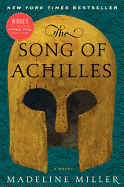
| Publisher: | Ecco | |
| Genre: | General, Fiction, Historical | |
| ISBN: | 9780062060617 | |
| Pub Date: | March 2012 | |
| Price: | $25.99 |
| Fiction |
by Madeline Miller
In Homer's Iliad, several themes are underlined--fate, honor, wrath and that most Greek combination of pride and arrogance, hubris. But one thing The Iliad is never billed as is a love story. Until now.
Debut author Madeline Miller builds a brilliant novel around the story at the heart of The Iliad: the relationship between its key figure, Achilles, and his companion Patroclus--the son of a king, stripped of his title and exiled to tiny Phthia to be fostered by Peleus, father of Achilles. The boys become friends, and gradually more, but there are dark clouds hanging over this nascent romance: the prophecy that Achilles will die in battle, and Achilles' mother, the immortal and embittered sea-nymph Thetis.
The slow, sunlit pace of the novel undergoes a rapid shift once the scene moves to Troy. Miller's battle scenes combine thrilling action and subtle shifts in mood; it is here that she captures her readers most completely, tying the intimate story of Achilles and Patroclus to larger, resonant themes of honor, friendship and self-determination. With this dazzling jewel of a novel, Madeline Miller has proven more than worthy of the challenge of reworking a classic. --Debra Ginsberg, author
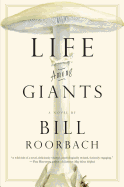
| Publisher: | Algonquin | |
| Genre: | General, Fiction | |
| ISBN: | 9781616200763 | |
| Pub Date: | November 2012 | |
| Price: | $24.95 |
| Fiction |
by Bill Roorbach
Life Among Giants is an extravagantly imagined novel about David "Lizard" Hochmeyer, a sweet high school quarterback from suburban Connecticut who loses his parents in a double murder and falls under the sway of the famous ballerina next door. As Lizard goes on to college and then the NFL, he and his older sister, Kate, struggle separately to solve the mystery of their parents' demise. Lizard relates their story in retrospect, and by letting the revelations unfold over the decades, Roorbach makes the novel a leisurely mystery as well as a bildungsroman. It's also a playful anthropological portrait of American preoccupations in the late 20th century: country club aspirations, 9-to-5 chicanery, Ivy League bumptiousness, the use of touchy-feely psychology in pro sports, the deification of prima ballerinas and the sloppy hedonism of 1960s rock stars.
Roorbach successfully creates a dozen unusual characters, including Lizard, English rock star Dabney Stryker-Stewart and Sylphide, his Norwegian ballerina-wife. With flashes of fantasy and obsession, and enormous heart, Life Among Giants enchants. --Holloway McCandless, blogger at Litagogo: A Guide to Free Literary Podcasts
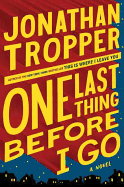
| Publisher: | Dutton | |
| Genre: | Fiction, Literary | |
| ISBN: | 9780525952367 | |
| Pub Date: | August 2012 | |
| Price: | $26.95 |
| Fiction |
by Jonathan Tropper
Jonathan Tropper scores again with One Last Thing Before I Go, a sharp and funny study in dysfunctionality and middle-age crisis. The protagonist is Silver, an unhappily divorced man in his 40s with a Princeton-bound daughter who resents him. He readily admits that he's been a lousy husband and father, and feels he's gotten what he deserves--days of hanging by the pool of a rundown efficiency with his equally loser buddies. He can't even bring himself to dislike his ex-wife's fiancé, Rich, a relentlessly decent surgeon.
Then his daughter shows up and drops a bombshell: she's pregnant and wants Silver to make a decision for her. At one point in their ongoing back-and-forth, Silver blacks out and wakes in a hospital with Rich standing over him telling him that he will die if he doesn't have an operation immediately to repair an aortic tear. Silver refuses the surgery and leaves the hospital, his reason unclear, but it's all of a piece with his general inability to commit to anything.
As the novel careens to its satisfying and not entirely expected ending, Tropper leavens the humor with many tender moments, but never manipulates our emotions. Both the laughs and the tears in this sweet and clever novel are genuine and well-earned. --Debra Ginsberg, author
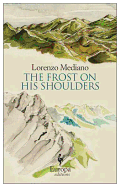
| Publisher: | Europa Editions | |
| Genre: | General, Fiction | |
| ISBN: | 9781609450724 | |
| Pub Date: | June 2012 | |
| Price: | $15 |
| Fiction |
by Lorenzo Mediano, trans. by Lisa Dillman
Lorenzo Mediano's The Frost on His Shoulders is a tight little masterpiece, told by an unnamed rural schoolteacher who begins by assuring us that the story buried deep in the newspaper was wrong about the tragedy that happened in 1934, in a village in the Spanish Pyrenees. "Of course, I might be wrong," he qualifies. "No one ever really knows for sure what dwells in men's hearts."
Ramón Gallar is a bright, handsome shepherd boy, who loves reading and borrows books from the schoolteacher. He falls in love with Alba, the daughter of wealthy Don Mariano, the most powerful man in the mountains. Scornfully rejected by the girl's father, Ramón swears he will return with money, and becomes the legendary smuggler known as the Desperado. As in any grand folkloric tale, an epic showdown looms.
Laced with the fears and beliefs of a brutal mountain world, the novel builds relentlessly to an unexpectedly horrifying ending. Every twist and turn in the story is crucial, and Mediano's melancholy schoolteacher brings it to a perfect surprise ending. The Frost on His Shoulders is an old-fashioned folktale of forbidden love told with genuine suspense, unabashed enthusiasm for the genre and breathtaking control. --Nick DiMartino, Nick's Picks, University Book Store, Seattle
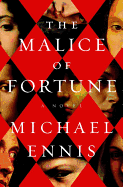
| Publisher: | Doubleday | |
| Genre: | General, Suspense, Fiction, Mystery & Detective, Thrillers, Historical | |
| ISBN: | 9780385536318 | |
| Pub Date: | September 2012 | |
| Price: | $26.95 |
| Fiction |
by Michael Ennis
Stieg Larsson and CSI meet Renaissance Italy in Michael Ennis's ambitious The Malice of Fortune, in which Leonardo Da Vinci and Niccolo Machiavelli team up to investigate a series of grisly murders. All the victims are women; all are horribly mutilated. Anyone might be the next victim, including the beautiful golden-haired courtesan Damiata, with whom Machiavelli has fallen in love--and who guards a secret or two of her own.
The fictitious story in The Malice of Fortune occurs within a framework of documented historical events involving Duke Valentino--better known as the notorious Cesare Borgia, eldest son of Pope Alexander VI--and the brigand leaders who propose to help him conquer Italy. A treaty between Valentino and these leaders would mean certain doom for Florence, and that is how Machiavelli enters the story--as a low-level emissary sent by the council of Florence to stall negotiations as much as he can.
As the corpses pile up, a complex pattern takes shape--a message from the murderer so deviously encoded that Da Vinci, recently retained as Cesare's chief architect, must turn the full weight of his intellect to solving it, as Machiavelli homes in on the mass murderer. A brilliant historical thriller. --Ilana Teitelbaum, book reviewer at the Huffington Post
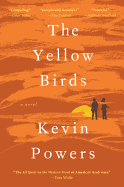
| Publisher: | Little, Brown | |
| Genre: | Fiction, War & Military, Literary | |
| ISBN: | 9780316219365 | |
| Pub Date: | September 2012 | |
| Price: | $24.99 |
| Fiction |
by Kevin Powers
In Kevin Powers's visceral debut novel, The Yellow Birds, the war in Iraq seems driven as much by the relentless intensity of the hot, bright sun as by the suicidal fervor of the insurgents. Private Bartle, 21, and his younger buddy, Murph, soldier up every day, donning body armor to walk the streets and outskirts of Al Tafar. Whether they live or die seems not a matter of training, strategy or superior technology but of luck.
The Yellow Birds is a meditative war story, more Red Badge of Courage than Catch-22. In chapters that alternately take place during training at Fort Dix, deployment in Al Tafar, discharge through Kaiserslautern and home again, Powers captures their transition from naïve enlistees to war-weary, guilt-ridden veterans.
Powers's sensitive novel reflects the soldier's difficult reentry back home, as Bartle holes up in an empty Richmond, Va., apartment while "the dull world that ignored our little pest of a war rolled on." When asked "Hey, how are you?" he wishes he could just tell the truth: "I feel like I'm being eaten from the inside out and I can't tell anyone what's going on.' " Fortunately, we have the talented Iraq War veteran Powers to tell his story for him. --Bruce Jacobs, founding partner, Watermark Books & Cafe, Wichita, Kan.

| Publisher: | Knopf | |
| Genre: | Literary Criticism, Inspiration & Personal Growth, Body, Mind & Spirit, General, Biography & Autobiography, Family & Relationships, Death, Grief, Bereavement, Personal Memoirs | |
| ISBN: | 9780307594037 | |
| Pub Date: | October 2012 | |
| Price: | $25 |
| Nonfiction |
by Will Schwalbe
We know Mary Ann Schwalbe will die of pancreatic cancer, and we mourn her from the opening pages. When her son, Will, offers to accompany her to appointments and treatments, he starts an early waiting-room conversation with a familiar question: "What are you reading?" Thus, their book-club-for-two was born. The story of the two years of Schwalbe's mother's illness, The End of Your Life Book Club is also an homage to her remarkable life: in theater, as director of admissions at Harvard and Radcliffe, as an organizer of refugee rescue efforts and as a wife and mother. We see her wit and acceptance, the strength she gives to others. Schwalbe's accounts of their book discussions lead to reflections on life, as well as insights into the works and the authors. (Early on, they literally passed Alan Bennett's An Uncommon Reader back and forth, sharing passages that expressed the passion for books they, too, felt.) Ultimately, though, The End of Your Life Book Club is about Mary Ann: How is she feeling in this chapter? Will she have a good report? We love her early on, and not weeping is not an option. --Cheryl Krocker McKeon, bookseller
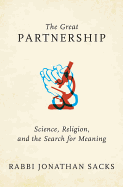
| Publisher: | Schocken | |
| Genre: | Religion, Religion & Science | |
| ISBN: | 9780805243017 | |
| Pub Date: | September 2012 | |
| Price: | $28.95 |
| Nonfiction |
by Jonathan Sacks
In The Great Partnership, Rabbi Jonathan Sacks offers an examination of the most profound issues of faith and science that is both intellectually rigorous and generous in spirit.
With an impressive range of scholarship that extends far beyond the Jewish tradition, Sacks marshals an array of arguments for the proposition that "we need both religion and science." He strives to convince us religion doesn't require "the abdication of the intellect, a silencing of critical faculties." Early in his argument, he writes, “Science takes things apart to see how they work, religion puts things together to see what they mean."
In stately and accessible prose, Sacks discusses topics like evolution, the problem of evil and the excesses of religion. He explicitly refrains from offering elaborate philosophical proofs for the existence of God, calling such an effort "misconceived." It's less important for Sacks to prove that a divine being exists than to live as if one does. --Harvey Freedenberg, attorney

| Publisher: | Knopf | |
| Genre: | Travel, United States, Biography & Autobiography, West, Women, Personal Memoirs | |
| ISBN: | 9780307592736 | |
| Pub Date: | March 2012 | |
| Price: | $25.95 |
| Nonfiction |
by Cheryl Strayed
Wild is a poignant, no-holds barred, kick-ass memoir that will grab you by the throat and shake you to your core. Cheryl Strayed is 22 when her mother dies, and for the next four years she's a mess: her marriage breaks up, she sleeps around, has an abortion and becomes addicted to heroin. Near rock bottom, she sees a book at a checkout counter about the Pacific Crest Trail, running from the Mexican border to Washington State. She buys the book, deciding that to save herself she must hike the trail, solo.
In a motel room in Mojave, Calif., about to embark, she realizes she's never really hiked, never really carried a heavy pack before. Nevertheless, she takes a shaky step into the hot light. The very first day, she's stabbed by a Joshua tree, then loses her bandages in a gust of wind while trying to open her first aid kit with bloodied hands. That evening, she reads an Adrienne Rich poem entitled "Power" over and over.
And so it goes, for 1,100 miles and three arduous months. This deeply felt, often humorous, and beautifully written memoir turns hiking into an act of redemption and salvation. --Tom Lavoie, former publisher
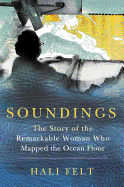
| Publisher: | Holt | |
| Genre: | General, Earth Sciences, Biography & Autobiography, Women, Geology, Historical, Science | |
| ISBN: | 9780805092158 | |
| Pub Date: | July 2012 | |
| Price: | $30 |
| Nonfiction |
by Hali Felt
Biography readers who love stories of fascinating, historically important figures should rush to find a copy of Soundings, Hali Felt's astute reconstruction of the life of Marie Tharp.
In 1948, Tharp, a brilliant and independent geologist, came to work at Columbia University's Lamont Geological Observatory. Barred from fieldwork due to her gender and relegated to drafting maps under men her junior in both age and education, Tharp nonetheless made a startling contribution to the world of earth sciences. While interpreting soundings (a measure of oceanic depth) into oceanic cartography, Tharp discovered the Mid-Oceanic Ridges, an underwater mountain range that proved the theory of continental drift.
While historical accounts show Tharp as self-contained and outwardly unemotional, the topography of her life contained mountains and valleys created by her mother's early death, her fight for acceptance in a man's world and her unorthodox relationship with Bruce Nezeen, her partner and lover. An intelligent, passionate woman, the political machinations of the Cold War, and an underwater world where "steaming hot springs resemble ladles of consommé," combine in a remarkable story.--Jaclyn Fulwood, blogger, Infinite Reads
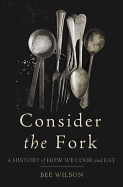
| Publisher: | Basic | |
| Genre: | History, Technology & Engineering, Cooking, Food Science | |
| ISBN: | 9780465021765 | |
| Pub Date: | October 2012 | |
| Price: | $26.99 |
| Nonfiction |
by Bee Wilson, illust. by Annabel Lee
Food writer and historian Bee Wilson delves into the lineage of the cookware, utensils and appliances in Consider the Fork, an entertaining history of kitchen technology: "It took countless inventions, small and large, to get to the well-equipped kitchens we have now." She discusses how cultural influences have changed the way people prepare and eat their meals, as well as how cooking implements have left their mark on civilizations.
Wilson's sprightly, knowledgeable voice skips nimbly through the narratives of pots and pans, knives, grinding implements and eating utensils, working up to the theme of the kitchen as a whole. Short asides on particularly interesting niche items such as the mezzaluna, rice cooker and toaster provide quick, fascinating epilogues to each chapter. Her insights will change the way you look at your kitchen accoutrements. Take the blunt butter knife, descendent of the deadly and versatile medieval belt knife: "It takes a civilization in an advanced state of politesse--or passive aggression--to devise on purpose a knife that does a worse job of cutting." --Jaclyn Fulwood, blogger, Infinite Reads
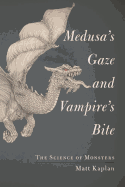
| Publisher: | Scribner | |
| Genre: | General, Folklore & Mythology, Social Science, Popular Culture, Science | |
| ISBN: | 9781451667981 | |
| Pub Date: | October 2012 | |
| Price: | $26 |
| Nonfiction |
by Matt Kaplan
Matt Kaplan shines the light of modern science on all things mythological and monstrous in Medusa's Gaze and Vampire's Bite, using everything from anthropology to zoology in the quest to uncover the origin of monsters. He moves beyond the simplistic idea that ancient people just wanted to tell stories--instead, he searches archeological and fossil records for the physical origins of those stories. Some of his conclusions are far-fetched, such as the theory that ancient people "discovered" the chimera (a goat, lion and snake hybrid) in a comically complex tar pit accident. Other explanations, however, are both fascinating and seemingly plausible: Charybdis, an enormous living whirlpool from the Odyssey, can be traced to tidal forces in the Strait of Messina that existed in Homer's time.
Kaplan especially excels as he moves from ancient mythology to more modern inventions. World exploration has killed the European-style dragon, for example, but fear of contagious disease lives on through the infectious undead. Readers seeking the facts behind spooky fiction will find Medusa's Gaze and Vampire's Bite entertaining and informative. --Tobias Mutter, freelance reviewer

| Publisher: | Viking | |
| Genre: | Travel, Essays & Travelogues, Hikes & Walks | |
| ISBN: | 9780670025114 | |
| Pub Date: | October 2012 | |
| Price: | $27.95 |
| Nonfiction |
by Robert MacFarlane
Robert Macfarlane's lyrical account of walking ancient paths in The Old Ways stretches to encompass poetry, cartography, sailing, science, birds, beasts, mountain climbing, folklore and other topics too numerous to list--and he proves a knowledgeable and fascinating guide in every aspect.
Macfarlane traces dozens of ancient paths on land and sea, beginning in Cambridgeshire, England, but eventually stretching from the Outer Hebrides to the Himalayas. He renders each place and its inhabitants (human and otherwise) in precise, vivid detail, while exploring how outer landscapes shape our inner journeys, both as we walk a landscape and long after we have left it. For Macfarlane and the guides he meets along the way, walking becomes a way of knowing oneself, of turning inward through outward motion, a constant exchange of discovery and self-discovery.
There is great pleasure in reading from Macfarlane's perspective as he explores the ways we mark our landscapes, and the ways they, in turn, mark us. --Katie Noah Gibson, blogger at Cakes, Tea and Dreams
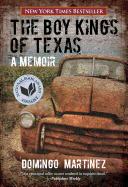
| Publisher: | Lyons | |
| Genre: | Biography & Autobiography, Literary, Personal Memoirs | |
| ISBN: | 9780762779192 | |
| Pub Date: | July 2012 | |
| Price: | $16.95 |
| Nonfiction |
by Domingo Martinez
Domingo Martinez was born in the early 1970s in Brownsville, Tex., on the Mexican border. His youth was marked by violence and family drama; he grew up wanting only to escape, but unsure how to do so. The Boy Kings of Texas, a National Book Award nominee, introduces readers to Martinez's philandering father; his work-obsessed grandmother; his older sisters; his generally forgotten mother; and centrally, his older brother, Dan. Martinez describes in glaring, painful detail his drug-dealing friends and family--one time, he bought pot from two local thugs who turned out to be his uncles but who didn't recognize him through their drug-induced haze--and his gradual, excruciating withdrawal from Texas and the life he'd always known.
Martinez eventually ends up in Seattle, making agonizing attempts at starting fresh, handicapped by a childhood whose dominant lesson was machismo at the expense of all else. While a final, happier ending is hinted at, Martinez's story is heartrending and uncomfortable, but he maintains a surprising sense of humor that keeps the reader rooting for him. --Julia Jenkins, librarian and blogger at Pages of Julia
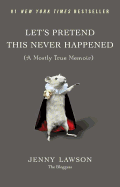
| Publisher: | Amy Einhorn/Putnam | |
| Genre: | Biography & Autobiography, Women, Personal Memoirs | |
| ISBN: | 9780399159015 | |
| Pub Date: | April 2012 | |
| Price: | $25.95 |
| Nonfiction |
by Jenny Lawson
With Let's Pretend This Never Happened, Jenny Lawson expands on the persona she's honed on her popular website The Bloggess while crafting a narrative that's entirely accessible to new readers, with a flair for comic exaggeration that will induce laughing and cringing in equal measure. While some of the material in the book may be familiar to Lawson's online readers, much of it consists of stories she hasn't shared before: Lawson's rural West Texas childhood, with her dad's backyard taxidermy shop; how she met and married the famously long-suffering Victor; her rather unlikely career in human resources with a faith-based organization; and her ultimate decision that her daughter deserved a crazy country childhood, too.
Lawson elaborates on the ways that the Internet has helped her deal with her nearly crippling social anxiety and sense of inappropriateness; the chapter "Making Friends with Girls" is certain to connect with her core audience, but will resonate with anyone who's struggled with fitting in.This condition probably means that Lawson would never have had a career in stand-up comedy, but the stage's loss is the literary world's gain. --Florinda Pendley Vasquez, blogger at The 3 R's Blog: Reading, 'Riting, and Randomness
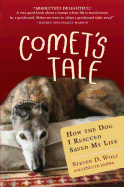
| Publisher: | Algonquin | |
| Genre: | Pets, Breeds, Dogs, Essays & Narratives | |
| ISBN: | 9781616200459 | |
| Pub Date: | October 2012 | |
| Price: | $23.95 |
| Nonfiction |
by Steven Wolf
Steven Wolf was forced into retirement in his early 40s due to spinal degeneration. Living in Arizona during the winter to escape the cold of Nebraska, where his wife and daughters remained, Wolf found companionship unexpectedly in Comet, a retired racing greyhound who decided to adopt Wolf. In Comet's dignified, gracious presence, Wolf finds temporary solace, but his health continues to degrade, until getting out of bed or opening a door become monumental tasks. When his friends and health workers suggested Wolf get a service canine, he rejected the idea until his massage therapist asked, "What about Comet?"
Inquiries to professional trainers met responses that varied from polite refusals to outright laughter. After all, greyhounds are known for one thing: speed, not brains. However, determined to prove the world wrong, he set out to train Comet himself, a journey that would bond the pair irrevocably and ultimately lead to a reversal of fate.
Although every bit a top-notch dog story, Comet's Tale is at heart an inspiring look into a man's struggle to remain himself in the face of a progressive disability. Wolf's admission of his own flaws and mistakes is as courageous and endearing as his fight to maintain independence, making the incredible ending both startling and welcome. --Jaclyn Fulwood, blogger, Infinite Reads

| Publisher: | Schwartz & Wade/Random House | |
| Genre: | Animals, Dogs, Juvenile Fiction, Birds, Books & Libraries | |
| ISBN: | 9780375870866 | |
| Pub Date: | July 2012 | |
| Price: | $17.99 |
| Children's & Young Adult |
by Tad Hills, illust. by Tad Hills
In this terrific follow-up to How Rocket Learned to Read, Hills delivers another gently humorous story about mastering a skill and making a friend.
Rocket, now a reader, has taken up word collecting. He brings back to his teacher, the little yellow bird, words like "buttercup," "bug" and "feather." A double-page spread depicts a "nest" high in a pine tree. The book brims with teachable moments: Rocket writes down words such as "leaf," "bush" and "dog" (nouns), while the bird adds more words (e.g., "for," "by" and "the"). Rocket returns repeatedly to that tree--and the nest dweller, who introduces herself as "Owl." Writers young and old will recognize Rocket's plight: "He looked down at the blank page and the blank page looked up at him. But no story would come."
As Rocket reads his drafts to the owl, she asks, "Then what happened?"--music to any storyteller's ear--and a friendship blossoms. Once again, Hills delivers a double dose of smart tips on learning while also illustrating how to be a good friend. --Jennifer M. Brown, children's editor, Shelf Awareness
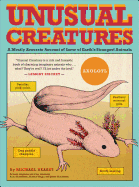
| Publisher: | Chronicle | |
| Genre: | Life Sciences, Science, Zoology - General | |
| ISBN: | 9781452104676 | |
| Pub Date: | September 2012 | |
| Price: | $16.99 |
| Children's & Young Adult |
by Michael Hearst, illust. by Arjen Noordeman, Christie Wright, Jelmer Noordeman
Young animal lovers and science fans will glom onto this paper-over-board information book, brimming with facts and humor.
An inviting design allows readers to dip in and out or read straight through the profiles of 50 fascinating creatures, which appear in alphabetical order. Each creature's treatment gives the scientific name, the Kingdom, Phylum, Class, etc., a map of its habitat, a brief description and fun factoid, plus a picture of the creature with a scale of inches or feet. The factoids might be his "short poem" tributes to animals of land, sea and sky (the bilby, blobfish, dugong, etc.), or a visual progression of a process unique to the creature (the regeneration of the axolotl's tail, for instance). There's a "Pop Quiz" for the Chinese giant salamander, which can measure up to six feet, and "Platyfacts" for the platypus. Artist Jelmer Noordeman illustrates each animal with scientific accuracy, while playing up its distinctive features.
With its quirky facts and creatures and the sense of a world waiting to be revealed, this book may well inspire a new generation of budding scientists. --Jennifer M. Brown, children's editor, Shelf Awareness
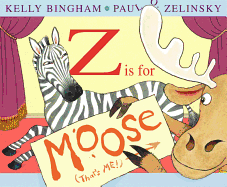
| Publisher: | Greenwillow/HarperCollins | |
| Genre: | Animals, Concepts, Juvenile Fiction, Deer, Moose & Caribou, Humorous Stories, Alphabet | |
| ISBN: | 9780060799847 | |
| Pub Date: | February 2012 | |
| Price: | $16.99 |
| Children's & Young Adult |
by Kelly Bingham, illust. by Paul O Zelinsky
This theatrical comedy from Kelly Bingham (Shark Girl) and Caldecott Medalist Paul O. Zelinsky (Toys Come Home) sets a new standard for the alphabet book. Apple takes the stage first ("A is for Apple"), and referee Zebra checks Apple off his list. Ball lays aside its stuffed bear to steal the spotlight, followed by a coquettish Cat. But what's this? "D is for Moose?" "Moose does not start with D. You are on the wrong page," Zebra admonishes.
Young letter-learners will adore knowing more than Moose does, as he steps on Hat, shouting, "Is it my turn yet?" then wises up during Lollipop's turn ("Here it comes!"). "M is for..." Not Moose! "Wait! No! That was supposed to be me! Moose! With an M!" Moose erupts in a terrible twos–type tantrum. Zelinsky goes to town, breaking the frames and disrupting the established type treatment as Zebra tries to protect everything in Moose's path.
Author and artist convey emotional honesty in this group dynamic. Moose is the overeager kid that you don't want on your team. But then, like Zebra, you feel horrible that you left him out. Happily, every cast member appears on the final page, just like a curtain call. Encore! --Jennifer M. Brown, children's editor, Shelf Awareness
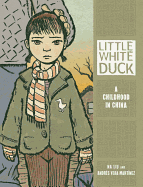
| Publisher: | Graphic Universe | |
| Genre: | General, Juvenile Fiction, Historical, Asia, Comics & Graphic Novels | |
| ISBN: | 9780761381150 | |
| Pub Date: | October 2012 | |
| Price: | $9.95 |
| Children's & Young Adult |
by Na Liu, Andrés Vera Martinez, illust. by Andrés Vera Martinez
This extraordinary memoir offers readers a close-up picture of life in 1970s China.
Called "Da Qin," Na Liu was born outside Wuhan, China, in 1973. The book opens as young Da Qin wakes up, thinking she'll be late for school, and heads outside to a spigot to brush her teeth. But there is no school today. It is September 6, 1976, and Chairman Mao has died. Na Liu's recollections demonstrate the benefits to her family under Mao, especially to her mother who, paralyzed by polio as a girl, was able to walk again. Co-author Andrés Vera Martínez (Babe Ruth), Na Liu's husband, uses the graphic novel format to perfection, zeroing in on Da Qin's expressions, and conveying Mao's importance through wide-angle views of murals and banners.
In the last and most moving chapter, Da Qin insists on wearing her coat with a velvet white duck to her Baba's rural village. Da Qin learns firsthand of the disparities in her country, and gains compassion because of it. Liu and Martínez find the universal moments in the details of an exotic land, inviting readers to see themselves in Da Qin's experiences of friendship, family and country. --Jennifer M. Brown, children's editor, Shelf Awareness
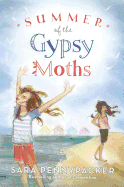
| Publisher: | Balzer + Bray | |
| Genre: | Friendship, Social Issues, Family, Juvenile Fiction, Orphans & Foster Homes | |
| ISBN: | 9780061964206 | |
| Pub Date: | April 2012 | |
| Price: | $15.99 |
| Children's & Young Adult |
by Sara Pennypacker
Sara Pennypacker's (the Clementine series) moving story of a pivotal summer on Cape Cod explores the growing trust between two opposite girls forced to mature before their time.
Narrator Stella, who's almost 12, comes to live with her great-aunt Louise after her grandmother dies and her mother heads off to parts unknown. Stella loves the water, Louise's blueberry bushes and how everything has its place in Louise's house. Louise also takes in an orphan named Angel, to keep Stella company. But the two are "oil and water." When the girls get home from school one day to discover Louise dead in front of the TV set, however, they band together to pretend Louise hasn't died.
Their scheme involves episodes of laughter and poignancy, as the girls' teamwork creates a mutual respect. Pennypacker creates adults as compelling as her two young heroines, who eventually figure out where they belong. Like Clementine, Stella's quirks and offbeat humor make her real and lovable. --Jennifer M. Brown, children's editor, Shelf Awareness
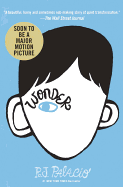
| Publisher: | Knopf | |
| Genre: | Diseases, Illnesses & Injuries, School & Education, Self-Esteem & Self-Reliance, Social Issues, Health & Daily Living, Juvenile Fiction | |
| ISBN: | 9780375869020 | |
| Pub Date: | February 2012 | |
| Price: | $15.99 |
| Children's & Young Adult |
by R. J. Palacio
This extraordinary book makes you see the world differently.
R.J. Palacio's debut novel, told through six different first-person narratives, forms a composite of what life is like for, and because of, 10-year-old August Pullman. A rare genetic perfect storm "made war on his face," as Auggie's sister, Via, puts it. Via loves her brother, but she is also a realist. So is Auggie, as he makes plain in his own words on the first page, "I won't describe what I look like. Whatever you're thinking, it's probably worse." Their bond forms the foundation of this inspiring story.
The book follows Auggie through fifth grade, when he enters school for the first time at Beecher Prep, and Via as she starts at the prestigious Faulkner High School. We watch the changing dynamics as the two siblings both experience friends who betray them and perceived enemies won over to their side.
Auggie's presence in people's lives acts as a catalyst to bring them face to face with themselves. If they look deep enough, they find humor, courage and friendship. --Jennifer M. Brown, children's editor, Shelf Awareness
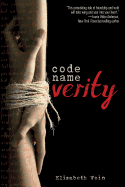
| Publisher: | Hyperion | |
| Genre: | Friendship, Military & Wars, Mysteries, Espionage, & Detective Stories, Social Issues, Juvenile Fiction, Europe, Historical | |
| ISBN: | 9781423152194 | |
| Pub Date: | May 2012 | |
| Price: | $16.99 |
| Children's & Young Adult |
by Elizabeth Wein
"I am a coward." That is the opening line of Wein's (The Winter Prince) extraordinary novel, and the first confession written down by Verity for her Nazi captors.
Verity is a Scot working for the allies. Her plane went down in France, and she's being held by SS-Hauptsturmführer von Linden. Fräulein Engel translates Verity's account from English to German for von Linden, and SS-Scharführer Etienne Thibaut metes out Verity's punishment for various transgressions. Verity calls them "Laurel and Hardy," and believes that von Linden hopes she'll "do some ratting" on them. But her small acts of rebellion betray her bravery. Thus Verity amuses herself--and readers.
Most of Verity's account weaves in episodes from her friendship with Maddie Brodatt, the pilot who was flying their doomed plane. Verity's recollections of Maddie serve as a record of the rare moments of pleasure during wartime. "It's like being in love, discovering your best friend," she writes. Wein conveys a complexity with her characters that may at first elude us, and the ground shifts with each revelation. Wein's work is mesmerizing. --Jennifer M. Brown, children's editor, Shelf Awareness
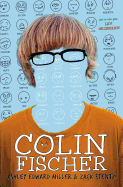
| Publisher: | Razorbill | |
| Genre: | Mysteries, Espionage, & Detective Stories, Social Issues, Juvenile Fiction, Special Needs, Humorous Stories | |
| ISBN: | 9781595145789 | |
| Pub Date: | November 2012 | |
| Price: | $17.99 |
| Children's & Young Adult |
by Zack Stentz, Ashley Edward Miller
The 14-year-old hero of this extraordinary debut novel is like no one else we've met in children's literature. As a teen with Asperger's syndrome, Colin Fischer may find social interactions challenging, but he is "high functioning," brilliant and focused.
On his first day at West Valley High, the wrong student is accused of bringing a gun to school. Colin knows that Wayne Connelly, who has bullied Colin for as long as he can remember, eats too neatly to have smeared cake icing on the gun. Colin is determined to find the true culprit. A generous smattering of entries from his notebook reveals how Colin's mind works, and extensive footnotes let readers inside Colin's favorite films and obsessions. A photo of Basil Rathbone hangs over Colin's bed ("the definitive inhabitant of the role of World's Greatest Detective," Sherlock Holmes). His pursuit of the truth takes Colin outside of his comfort zone.
As Colin works on solving the mystery of the gun's owner, he is also figuring out Colin--and learning that his own life is, in many ways, a mystery to be solved. Though he's a creature of routine, Colin still manages to surprise us. Readers will take this hero to heart. --Jennifer Brown, children's editor, Shelf Awareness
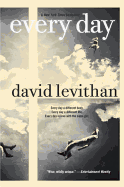
| Publisher: | Knopf | |
| Genre: | Love & Romance, Fantasy & Magic, Juvenile Fiction | |
| ISBN: | 9780307931887 | |
| Pub Date: | August 2012 | |
| Price: | $17.99 |
| Children's & Young Adult |
by David Levithan
David Levithan's (Will Grayson, Will Grayson) unusual love story will make teens think about how the core of the soul never changes.
A 16-year-old named A, neither male nor female, of undetermined race and ethnicity, wakes up every day in a new body. Each midnight, A's essence enters someone else. A's motto is essentially, "Don't disrupt the life you're living in." The narrator attempts to access the person's memories to try to behave as the host body would in any given situation. A has woken up as Hugo on Gay Pride Day, and as Ashton Ashley, with a face and figure that resemble Beyoncé's. Even a seemingly ordinary person is not ordinary. So many details make a life meaningful: "Knowledge is the only thing I take with me when I go." But on the day A wakes up in the body of Justin and falls in love with Rhiannon, Justin's girlfriend, A decides, "I want to be the one who lives up to her hopes, if only for the time I'm given."
A speaks of faith, love, dreams and death with a wisdom derived from thousands of lives visited over 16 years, and offers firsthand proof of how much humans share rather than what sets them apart. --Jennifer M. Brown, children's editor, Shelf Awareness
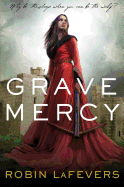
| Publisher: | Houghton Mifflin Harcourt | |
| Genre: | Fantasy & Magic, Action & Adventure, Juvenile Fiction, Europe, Historical | |
| ISBN: | 9780547628349 | |
| Pub Date: | April 2012 | |
| Price: | $16.99 |
| Children's & Young Adult |
by Robin Lafevers
Robin LaFevers gives us a riveting story set in 15th-century Brittany that is part spy novel, part feminist coming-of-age tale.
Ismae Rienne describes a "deep red stain that runs from my left shoulder down to my right hip." It's a trail left by the herbwitch's poison at her birth. "That I survived… is no miracle but a sign I have been sired by the god of death himself," she says. With the help of the herbwitch, Ismae flees a dangerous arranged marriage to find refuge at the convent of Saint Mortain, the patron saint of death. Chancellor Crunard, a member of Brittany's inner council, believes that one of the duchess's most trusted confidants, Gavriel Duval, is leaking the secrets of Brittany's court to France, which seeks control of Brittany. Crunard enlists the convent's help, and the responsibility falls to Ismae.`
As she gets drawn deeper into court, Ismae begins to believe Duval's loyalty to the duchess. Is her growing attraction to Duval muddying Ismae's perceptions? This story of betrayal, intrigue and romance will keep readers burning the midnight oil, and leave them impatient for the next two tales, which follow fellow pledges in the convent. --Jennifer M. Brown, children's editor, Shelf Awareness